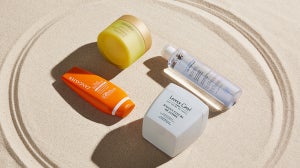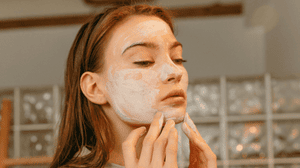
Glycolic Acid has been receiving a growing amount attention in the skincare industry, although there seems to be lots of misconceptions about this wonderful ingredient. With it being acidic in nature, many of us associate this ingredient with burning, feeling particularly scared about placing this on our face. With so many benefits, Glycolic Acid can often be the cure to many unwanted skin problems, so let us tell us tell you some more about this extremely beneficial ingredient.
What is Glycolic Acid?
Glycolic Acid is a natural ingredient which is actually derived from sugar cane. It's in the same class of acids as citric (from citric fruits) or lactic (from milk) acid under the umberella of α-hydroxy acids. It’s actually one of most common alpha hydroxyl acids and is one of the safest forms of alpha hydroxyl acid too.
Will Glycolic Acid burn?
It’s one of the most common questions asked here at Beauty Expert and so we want to let you know that if used correctly, Glycolic Acid should not burn. It is very safe to use as most skincare products only have a low percentage of glycolic acid (5-10%) which is sufficient for self-treatment at home. There are peels available in salons that contain a higher strength (up to 70%) but due to these being a higher concentration, these are only offered by dermatologist and trained licensed aestheticians.
How does Glycolic Acid benefit our skin?
Well, there are many uses for this ingredient – making it a great ingredient and one that can really benefit the skin.
It is commonly used as an exfoliant and contains small molecules that penetrate into the skin. Once the molecules have penetrated under the surface of the skin, it loosens up the sticky substances that hold the skin together; removing the dead skin cells. It’s this process that results in brighter and more radiant skin.
It is also considered as one of the most effective anti-ageing skin care ingredients with its ability to reduce fine lines and wrinkles. It does this by stimulating your skin cells; helping to form new collagen inside your skin. This is what helps to plump and smooth fine lines and wrinkles.
The ingredient can work wonders for those with pigmentation as it helps lighten and even uneven skin pigmentation from melasma or age spots.
Does Glycolic Acid make my skin sensitive to the sun?
Glycolic Acid can make your skin very sensitive to the sun so it’s always best to wear a sunscreen throughout the day to make sure you’re protecting it from sun damage.
Our Favourite Products:









